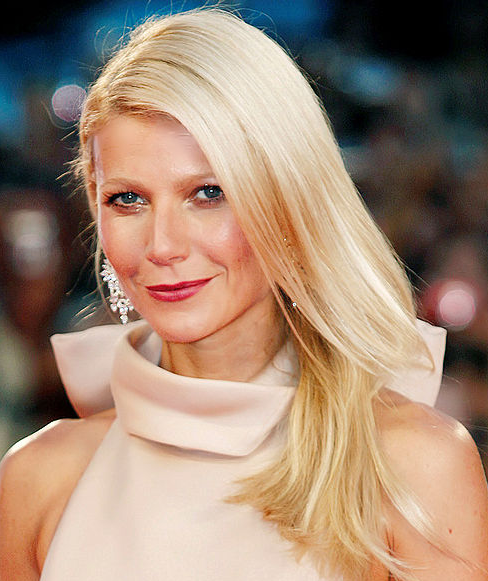Last week, when actress Gwyneth Paltrow announced that she and Coldplay singer Chris Martin had decided to “consciously uncouple,” she invited a great deal of ridicule and provoked many a laugh.
(And, from my colleague and friend Jennifer Grant, some serious concerns about the meaning of marriage implied by the phrase and accompanying essay.)

Gwyneth Paltrow at the 2011 Venice Film Festival. Photo courtesy Andrea Raffin via Wikimedia Commons.
Much of that was probably unkind, if amusing. Nevertheless, people’s reactions to Paltrow’s choice of words tells us something important about the power of naming.
I have an essay published in a book called Talking Taboo: American Christian Women Get Frank About Faith that I sometimes leave off of my CV, because it has the word ‘sh*t’ in the title.
For most people, of course, the ‘s’ word is almost laughably mild (if not absolutely laughably mild), but I was 17 years old the first time I uttered it, and I was mortified.
In my senior year of high school it became clear that the brace I’d been wearing for nearly four years wasn’t doing anything to stop the rapid curving of my spine, and I had an operation that was painful beyond anything I’d even imagined. For days I could do little else besides frantically push the button that delivered another dose of narcotics and moan in pain.
It was imperative for my healing that I get up and moving as quickly as possible. I had a walker, the same exact kind you see being used in nursing homes, and I took tiny, shuffling steps and caught sight of many, many pitying looks, which is how I got a clue as to how pathetic I looked. I was skinny and small to begin with, and I rapidly dropped more weight in the hospital. My life seemed distilled down to my capacity to suffer.
So when the elevator doors began to close as I was shuffling through, and I lamely lifted my spaghetti-noodle arms to shield my busted-apart body from being squished in their metal grip, I exhaled an exhausted, drawling, shhhh*tttttt. Even in my pain, I was horrified, and I looked up at my mother, expected to see a shocked expression. Instead, she laughed: apparently, when I curse, I sound exactly like my grandmother.
In the essay, I talk about how words have always had a near-magical power for me. I believed that the whole universe had been created by God’s words, that Jesus was The Word, that the Bible was The Word of God, and that by speaking certain words one could either be saved or damned. It’s really no wonder that I was careful never to say a ‘bad’ word. Words had life-and-death significance.
I’m inclined to think that people’s reactions to Paltrow’s choice of words — and her inclusion of a very strange essay outlining why the concept of lifelong partnership is evolutionarily mismatched with how long contemporary humans live, on average — is more than just another case of busting on the clueless celebrity.
It is, rather, an outcry against a form of naming that just feels false, because for most people, divorce is more analogous to terms like ‘amputation,’ ‘death,’ and ‘horror.’ Paltrow’s divorce sounds like something that happens on a peaceful retreat on an ashram; most people’s divorces sound like something that happen in a war zone.
There is a certain kind of goodness — call it honesty, maybe — that comes with accurately naming things, and doing so unashamedly. With saying the only word that honestly and accurately sums up the situation at hand.
Even, occasionally, if that word happens to be a feeble, exhaled, drawn-out ‘sh*t.’





